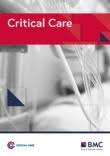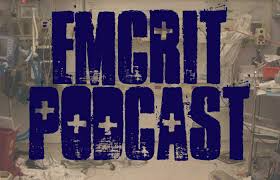RAP 77
1) Ketamine vs Etomidate as an induction agent
Review Summary
-
Source:

- Authors: T Koroki, Y Kotani, T Taguchi, et al.
- Reviewer: Sam Cox, MD
4
BEEM Rater Scale
4
Educational Utility
6
Evidence Based Medicine
Takeaway
Ketamine is potentially associated with decreased 28-day mortality when compared to etomidate as an induction agent for rapid sequence intubation, but more research is needed to control for confounders.
2) Practitioner Perspectives on AI in Emergency Triage
Review Summary
-
Source:

- Author: Mike Menchine, MD
- Reviewer: Ismar Terzic, PA-C
4
BEEM Rater Scale
2
Educational Utility
1
Evidence Based Medicine
Takeaway
Perspectives and attitudes of a potential adjunctive AI triaging system overall met with positive associations, but far from implementation, and many barriers to address including social, legal, ethical, and cultural considerations.
3) Emergency Care of Post-Bariatric Procedure Complications
Review Summary
-
Source:

- Author: Vincent Cheng, MD
- Reviewer: Zach Affeldt, MD
3
BEEM Rater Scale
5
Educational Utility
1
Evidence Based Medicine
Takeaway
- Know what your patient’s anatomy is/what device was placed and when. Workup as if any other abd pain.
- Involve surgery early, acutely ill patients will likely benefit greater from OR vs imaging as there is inconclusive sensitivity and specificity.
4) High sensitivity vs conventional troponin in HEART pathway
Review Summary
-
Source:

- Author: Mike Menchine, MD
- Reviewer: Jenna Wilkinson, MD
1
BEEM Rater Scale
7
Educational Utility
5
Evidence Based Medicine
Takeaway
High sensitivity troponin assays are more sensitive and can detect smaller AMIs earlier. We need more data on LOS in the ED for false positives though.
